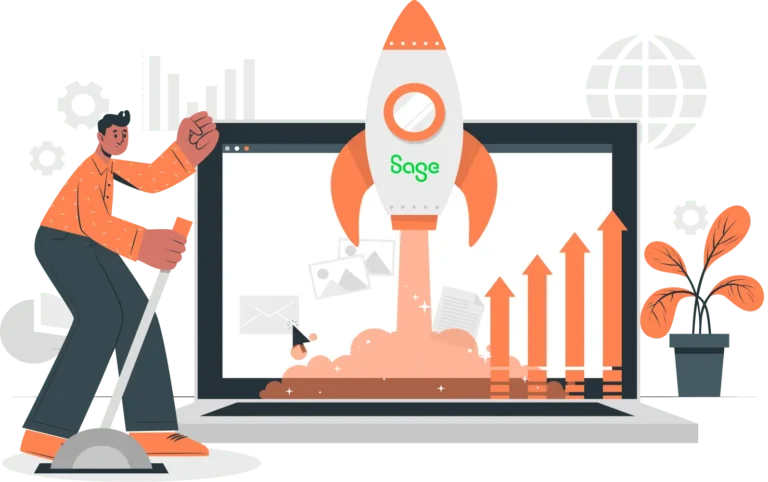- Solutions
-
-

Solutions
Perfect eCommerce solutions for any business. We provide customized solutions for B2B and B2C businesses across multiple industries.
Learn more
-
-
- Products
-
-

Products
Streamline backend operations, improve inventory management, and more with our business management software.
Learn morePLATFORM
-
-
- Services
-
-

Services
We go beyond software to provide the customizations, services, and support your business needs.
Learn more
-
-
- Industries
-
-

Industries
Business management software tailored to meet the needs of specific industries, including industry-specific regulations.
Learn moreINDUSTRIES
-
-
- Resources
-
-

Resources
Learn more about business management software and the latest developments in the industry.
Learn more
-
-

Blog / How to Prepare Your Website for the Holiday Shopping Season
How to Prepare Your Website for the Holiday Shopping Season
November 10, 2020
As the days get shorter and colder, we all know what that means. Yes, it means that it’s time to prepare for the holiday shopping season once more. For consumers, the holiday shopping season may invoke feelings of nostalgia or joy. For others, it may cause panic as they prepare to travel or host family and try to check off every item on their family’s Christmas list. For retailers, the holiday season is big business. For small retailers, the holiday shopping season may be about survival.
In 2017, Black Friday was the best shopping day of the year, followed by Dec. 22nd and Dec. 23rd. Nine of the top 10 biggest shopping days fell between Thanksgiving and Christmas, according to data from small business software firm Womply.
2020 is going to be different. With the ongoing pandemic and partial shutdowns still in effect in some states, retailers are braced for increased website traffic and sales and reduced foot traffic. This year has already seen huge shifts in consumer shopping habits, with more and more people shopping online. For some, this is merely an acceleration or intensification of their existing shopping habits. For others, 2020 marked the first time they bought anything online.
How are retailers supposed to prepare for the holiday shopping season and make sure their website will perform as it should?

6 Ways to Prepare Your Website for the Holiday Shopping Season
As retailers prepare for the holiday shopping season, or for any other expected increase in sales, they should perform a website audit of:
-
Site Performance – Auditing site performance involves checking the factors that impact site performance and speed. This includes removing unneeded third-party tools and widgets, implementing DNS prefetching and preconnect, reducing the number of jQuery libraries so that your site uses as few libraries as possible, and removing redundant or outdated CSS instructions. The goal is to improve your website speed. As a general rule, a faster website it a better website.
-
Load Testing – Load testing involves putting demand on a system and measuring its response. The goal is to see how your website will perform with different levels of traffic, and to prevent your web site from crashing under heavy use. The last thing you want is for your website to crash when you get a lot of users because most of them—and their sales dollars—will not be coming back.
-
UX & Checkout Flow – UX stands for user experience. Everything about your website design should be intended to optimize the user experience. Remove unnecessary clicks and make it easy for your customer to get from the product page to the shopping cart to checkout.
-
Agility in Adaption – Companies want to remain agile and flexible with their website design and as they implement changes. Remaining flexible will help companies adapt to sudden changes while keeping their customers happy.
-
Security – As always, security is a big concern for eCommerce sites. Following several high-profile breaches, consumers care a lot about website security, too. Give your customers the confidence to shop on your site with a safe, secure website that will protect their private information from hackers.

A Crisis Playbook
All companies should also have a crisis playbook that lays out what should happen in the case of a crisis. It will be much easier to handle a crisis going forward if you have a playbook that lays out how your organization will respond.
Your crisis playbook should include:
-
The company’s plan for how it will communicate internally with its employees and externally with its customers or other partners
-
A contact list for each team and touch points to ensure that each person who needs to be contacted will be informed
-
Guidelines for how to rank support tickets for your IT staff or external consultants
In business, we have all learned to expect the unexpected. It’s usually not the things you see coming that cause problems, but the things you don’t. Even though you might not be able to predict what your next business crisis or challenge might be, having a playbook will make handling it easier and do less long-term damage to your business.

Preparing for a Post- COVID World
As we have previously covered here and here, the retail landscape will look different after COVID-19. Consumers who shifted much of their shopping to online are likely to keep shopping online more often going forward. All retailers will need to have robust websites that offer a good customer experience, or their customers may go elsewhere and not come back.
About Us
CertiPro is an expert in Sage Magento integrations. We connect your Sage ERP and your Magento webstore to save you time and money while providing a better experience for your customers. We also provide expert support with Magento, including web design, UX support, and more. Contact us today to see what we can do for your business.
Send us a message
Please fill out the form below and one of our associates will contact you shortly.
Training and optimization available for current Sage software

